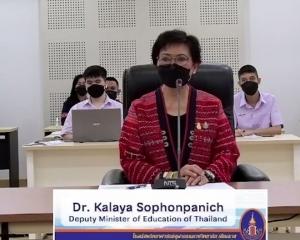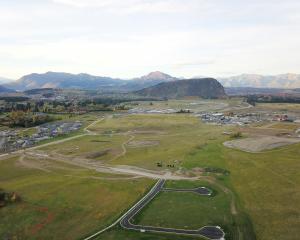Dunedin secondary school pupils may be forced to attend the school nearest to them if one option proposed by the Ministry of Education is adopted.
The ministry has put up for discussion four options for improving the efficiency of the Dunedin secondary schools network.
The options are contained in a Dunedin secondary schools discussion paper released to the Otago Daily Times under the Official Information Act.
Roll figures for 2015 show the city's secondary schools have capacity for 9252 pupils, but 1513 spaces are not used in Dunedin - the equivalent of two secondary school rolls.
To make the network more efficient, option one is to implement a system in which the majority of an area's pupils attend their local schools.
The discussion paper said this would be a long-term goal and ''likely to be effected gradually over time''.''
This option is centred on defining planning catchments for all Dunedin secondary schools, and using these as a basis for managed access.''
This approach is conceptual only, and would need to be considered by the Minister of Education before it could be implemented.''
It is possible that legislative change may be required.''
The document said single-sex education was a dominant choice across Dunedin, and ''a layered approach to single-sex and co-educational school zoning'' could be explored.''
This approach would support greater collaboration between single-sex and co-educational schools by reducing direct competition between these schools through managed access to the single-sex schools.''
It would balance choice for single-sex education against the implications of this choice so as not to disproportionately affect one co-educational school over another.''
Option two looks to retain the diversity of schooling in Dunedin by developing ''specialist schools''.
This meant schools could specialise their curriculums in certain areas - such as science, languages or the arts - thereby providing educational pathways that would best fit the career aspirations of pupils, the discussion paper said.
Option three is a mixture of options one and two.''
Could a collaborative model be developed, that still will have some aspects of managed enrolment to mitigate against the risk of significant roll growth or roll decline?''Option four is to stick with the status quo.
The discussion paper showed this was ''not an option per se'' for the ministry.''
If this is the only action taken now, it is possible that more substantive network changes will be necessary ...''
One Dunedin principal, who declined to be named, said if they had to choose an option, they would go with option one.
''I think Dunedin would be well set up for that, in regards to the fact that it would still offer parents a range of choice.
''But there's a lot more water needs to go under the bridge, and we're looking forward to being part of the discussion with the ministry.''
Another Dunedin principal, who also declined to be named, said option three had potential.
''There's some areas we could collaborate on ... there's some room to manoeuvre there.
''Whether it's enough to save the network in its current form is anyone's guess. At the moment, there's not an option that is going to be the panacea to fix it all.''
A third principal said they would choose whatever option would maintain parents' ability to send their children to whichever school they wished.
Two other principals, who wished to remain anonymous, said they would not choose any of the options because they were ''not viable or realistic''.
''Is there a fifth option? I can't think of one. They [the ministry] clearly can't think of one.
''I don't know what we're going to do, to be perfectly honest. It's all a bit frustrating, really.''
Ministry of Education sector enablement and support head Katrina Casey said the options were intended to help discussion around developing a framework for future planning and did not represent Government policy or ministry preferences.
''The feedback received to date has not identified any strong or common preferences for these high-level principles or the initial thinking around the options,'' she said.
''We are not actively pursuing implementation of any option at this time.
''As they stand, they are not sufficiently developed to even be operational in the current schooling context.
''Instead, we are looking to support and enhance current collaborative practices in Dunedin.
''There is no timeframe for the implementation of any of these options.''











